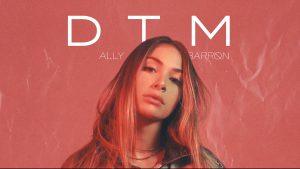You’ve been told how great of a singer-songwriter you are by your friends and family, and you believe you’re the next big thing—but you’re new to the industry. So you decide to contact every single person related to the music industry and put yourself on their radar.
Here are some dos and don’ts (mostly don’ts) that I decided it’s time to share.
1. Remember that you are not special.
Yes, that’s right. I don’t care how good and talented you are–if you haven’t yet proven yourself in the world, you’re just another artist reaching out, and your email or phone call is one out of many, many, many others that industry people get all the time. This is why you’re probably wasting your time if you don’t first make sure you have some great tracks and an online presence before reaching out. (More on that below!)
2. Don’t sell yourself with words.
Don’t ever call someone and say something like “I’m one in a million,” “I’ll make you a lot of money,” “My friend is a great singer, you have to work with them,” “You’ll be honored to work with me,” etc.
The type of people you’re trying to reach hear those openings every day and have become numb to it. Your #1 goal should be to get them to listen to your music (or your friend’s music), and telling them the above will only make you seem like an amatuer. Who wants to listen to the music of an amateur?
3. Why won’t they listen?
In your own little world, you’re amazing, and you might just be the next big thing–so why isn’t the world ready for you? Why do music professionals ignore you?
The main reason is that, in 2020, there’s a process in place to get discovered that you might not be aware of:
a. You need to invest your own money to create killer music and market yourself. This shows people that you’re serious.
If you don’t believe in yourself enough to invest in yourself, why would anyone else? There are so many artists out there willing to put their own money into producing great music, so industry professionals don’t even bother listening to amatuer demos because they have a lot to choose from.
b. You should build a strong online presence before reaching out to anyone. Labels and producers are always looking to develop artists who already have traction in the real world.
4. Learn “who’s who”–the difference between labels and music producers
If you’re calling a music producer and asking how to get signed, you’re wasting your time. The job of a music producer is to produce music, and the established ones get their work from labels who already signed artists they think are good.
A producer won’t sign you, but sometimes young, small producers claim they can get you signed in order to get you to work with them and pay them. Beware of that; they’re only telling you what you want to hear.
So what should you do?
After giving you a hard time, I want to tell you what I actually think you should do if you want to approach music producers and industry professionals (which I also cover in one of my other blogs more in-depth).
1. If you’re broke (or unwilling to invest in your music), look for new music producers–people who are talented but would work for free because they’re not yet well-established.
2. Use your first good feature to get to more and more small producers, building your sound by playing them that first feature.
3. Another option is to buy cheap beats online and record/mix your vocals with a professional music producer. Who knows? Maybe you’ll be the next Lil Nas. (But don’t count on that to be enough–you’ll need to get really lucky for it to go viral.)
As a rule of thumb, if you’re good enough and have enough presence online, eventually music professionals will reach out to you. But the dream of a label signing you out of nowhere is fading away, and it’s probably for the best. The artists who are willing to invest in themselves rise to the top.
Raz





